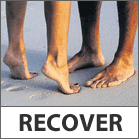
Occupying shelf space alongside the reports and files that you might expect to find in any publishing honcho's executive suite is Norah Casey's old Florence Nightingale nursing manual. It might, one supposes, come in handy were any of her employees to take a turn.
Late on Friday afternoon, though, as Harmonia Publishing (home to U, Woman's Way, Irish Tatler and Food & Wine magazines among others) slows down in the run up to the weekend, the members of Casey's staff seem to be in the whole of their health, sharing the strawberry pavlova that one of their number has produced as a pre-weekend treat. "It's a weekly event, this baking thing," says Norah. "Next week we're having a cake sale." The CEO clearly encourages the promotion of a collegiate environment and is keen to promote the image of Harmonia as a fun place to work.
Around the office, Casey appears a popular figure, although there is a definite sense of people jumping to it as she approaches their desks, snaffling a handful of Maltesers as she passes. She is hands on and fiscally rigorous. "People are surprised by just how involved I am. Even though I have a great financial team I'm still across all the budgets and cashflows. Our management accounting and systems are so good that we could go public tomorrow. And I still clear each cover for every single one of Harmonia's publications."
Her send-offs are legendary – the champagne flows and leavers are told that the door is always open should they wish to return. Employees who find themselves made redundant (contract publishing – customer magazines in the main – is in the doldrums) are put to the top of the freelance list for any work that is going.
But not everyone who leaves Harmonia stays friends with Norah, three times voted Irish Publisher of the Year and recipient also of the Veuve Clicquot Businesswoman of the Year in 2007.
Mary Kershaw, formerly sales director on Woman's Way, and Garret Whelan, Harmonia's former creative director, who left to join Maxmedia, now find themselves at the sharp end of a lawsuit wending its way towards the High Court in which Harmonia alleges the passing of commercially sensitive information in the tendering process for Cara magazine, previously published by Haromnia.
There was little in her early years to indicate the dynamic force she would become. "My grandfather, Leo Casey, was a Boland's Mill veteran who was sorted out by DeValera with a job of looking after the graves at Arbour Hill. With the job came a gate lodge to the Phoenix Park. He married and brought up his family there but he died young, and my father, a Guinness graduate, had to give up studies and his job at the brewery in order to take over his father's position so that his mother and sisters could continue to live in the house. When he married my mother, they brought up their six children there. Later they called him a park ranger and gave him a fancy jeep."
Norah spent her childhood roaming the park, coming to know every inch of it. Her best friend's father was the superintendant of the zoo, and so the girls lived in pets' corner – "helping to de-lice the pigeons, milk the goats and muck out the rabbits". School was Stanhope Street in the north inner city where, in the mid-'70s, the expectations of the girls were not high.
"Very few people went to university. I left at 16 after my leaving cert not knowing what I wanted to do. I was looking for a job but there were none and so I spent a year working in the quarantine section of the zoo with the baby gorillas until someone told me about nursing opportunities in Scotland.
"My mother and aunt had both been nurses and I was itching to get away and stretch my wings a bit. So I ended up doing my training in a tiny hospital on the banks of Loch Lomond. It was tough work, mentally and physically, for very little money. And while there was plenty that I loved about nursing in terms of the extraordinary payback that you get from caring for people, there was also plenty that I didn't – the hierarchy, the rules.''
An opportunity to move to London and assume a role as a spokesperson at the "twinset and pearls" Royal College of Nursing was Norah's ticket out. She went from a salary of stg£3,000 to one of stg£10,000 with a car, a secretary and central London office thrown in.
"For the first time in years I wasn't on my feet for 12 hours at a stretch – it felt like a holiday. They trained me within an inch of my life," she says.
Courses at the BBC knocked the Irish-isms out of her speech and taught her how to give good interview. Within a couple of years she was a polished speaker appearing on television regularly and travelling the world to address nursing conferences. She was still only 25.
Casey's next move was to train as a journalist, after which she joined Nursing Standard magazine as a news reporter. By 30 she was running the company, had developed profitable book-publishing and conferencing divisions and realised that her biggest kick came from turning companies around. She was educating herself formally too – after a course in television production and direction and studies at the prestigious Ashridge Management College, she took an M Phil and registered for a PhD, which, in the way of these things, remains incomplete.
Business was good and, after the end of an early marriage (something she does not discuss publicly – her first husband died), she met BBC presenter Richard Hannaford at a media dinner in the early '90s and fell in love.
They put off having a child, not minding one way or the other, until suddenly it did matter; matter very much because it wasn't happening. Casey's experience of IVF was shattering. "I'm very open about it, and because I have talked publicly I find that other women who have been through it gravitate towards me to tell me about their own experience. It takes an incredible toll on the body ? physically, mentally, hormonally."
When she lost the baby conceived on the third cycle at six weeks she decided to give up – after years of being good and taking her folic acid every day she called for fags and brandy.
Within a couple of months she was pregnant, naturally. "I had terrible pains in my tummy and I went to see the doctor who we had been doing the IVF with us to see what was wrong. He gave me a scan and told me I was pregnant. It was incredible!"
She found out on the day she was due to sign a contract for a new job as editor of the Irish Post. "I told them that I was six weeks pregnant and that I might or might not stay that way. But I owed it to them to be honest. Thankfully they still wanted me." When she came back from maternity leave she was appointed CEO.
Having lived in London for years without ever being in touch with her Irishness, she was now in the thick of it. She founded the Women's Irish Network and organised the first Irish hustings for the London mayoral elections, extracting a commitment from Ken Livingstone to instigate a proper St Patrick's Day parade for London if he was elected. He was on the phone a few months later and she has chaired the festival committee or advisory forum ever since. This year she led the parade with Boris Johnson.
When Smurfit sold the Post to the Examiner, Norah was left running Smurfit's London operation – "a sweet company, everything was going well". But then in 2001, the bosses asked her to take on Smurfit Communications in Dublin as well. Her son Dara was still a baby, and she'd said she'd do it – if he came too. They managed for eight months – she was up at four on a Monday, schlepping the baby gear onto a plane and dropping Dara off at his Dublin montessori before hitting her desk, back to London on Wednesday evening to be ready for London work (and montessori) on Thursday morning. It sounds insane.
"It was very stressful. If you'd met me then I'd have said it was great, it was only three hours door to door. But it was madness. And it was difficult for us personally to deal with that. We were struggling to cope. Dara managed best – he saw it as a bus journey, and networked away with whomever was sitting next to him." Like mother, like son.
Eight months in and something had to give. Richard took a six-month sabbatical from the BBC and upped sticks to move to Dublin. ("It was a huge step; he had a great career.") They have been based here ever since. Richard is now editorial director at Harmonia, and Dara, an only child, is 10, happily relocated and seeing plenty of his Dublin cousins.
"If anything it was more difficult for me moving back," says Casey. "There should be a map showing who's related to whom. I still have gaps. Someone will say, 'So and so, she was famous in the '80s' and I won't know who they're talking about.
"I'd grown up in business terms in London and I was used to that more formal way of doing business. Now that I'm used to the talk of the weather and the match that precedes every meeting, I couldn't go back to doing it the other way."
A couple of years after arriving back, the chance came for Casey to head an MBO of Smurfit Communications and the iVenus website. Neither business was performing well. "People kept telling me I was brave and courageous, always a sign that they think you've made a big booboo."
Five years on and Casey says Harmonia is healthy, although expansion plans for 2009 have been put on hold and ideas that might have been pursued a year ago are no longer viable.
"Knitting patterns are back, so is cooking at home. Beauty is strong, but high-street fashion is struggling. We have to adapt. But with the support of the banks there's no reason for us to be contracting now. Harmonia is lean, flexible, competitive, hungry. In a recession, companies like ours can do really well. There's not a bit of fat in this business."



 del.icio.us
del.icio.us digg
digg Facebook
Facebook






